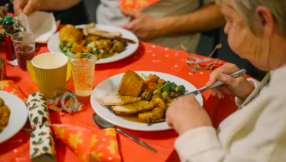
Warning: Some of this material could cause offense - but it may be being taught in your child's school.
Many see the now-mandatory RSHE (Relationships, Sex and Health Education, previously RSE) as a minefield. Ignored by most Christian entities, it is best left to 'the experts' - the Sex Education Forum, the Department for Education and NHS, and related sexual health charities.
Though good RSHE exists - and is vital - few programmes do the necessaries and of deep concern is the promotion of high-risk lifestyles.
STI rates continue rising among teens as do decisions to 'change sex', especially among girls. And a third of all child sex abusers are other youngsters.
Examples of 'sex positive' RSHE content include:
1. Smash[ing] heteronormativity. Advocated by the Educate and Celebrate charity. For CEO Elly Barnes, "The bottom line is to completely smash heteronormativity." But children themselves have commented, 'In our school every lesson is somehow linked to diversity ... it never stops'.
2. Twerking. In one recent example, a 'mov[ing] your bum up and down' [masturbation] demonstration by drag queen Mama G at a Devon library children's story time on 14 August 2019. And 'progressive' primary schools are promoting LGBT drag queen library events.
3. Bestiality. One lesson teaches mostly 11- to 12-year-olds that bestiality is "a sexuality whereby some people are attracted to and have sex with animals". This was taught as if it was "completely normal".
4. Rimming. 'The Sexy Stuff' NHS-endorsed health guide for gay 13- to 16-year-olds explains that "Rimming is when someone uses their mouth and tongue to explore someone else's bum', with caveats about hygiene.
5. Pornography. A Brook porn handout for secondary school lessons says that "watching porn alone, in a private place can be a very healthy part of someone's sex life".
6. 'Kink' Lists. Sexwise comes highly recommended by the DfE in their Statutory Guidance. But Sexwise (arguably targeting post-pubescent 13-year-olds) platforms the riveting 'Can Lists Make Your Sex Life Better?' with links to 'Oh Joy, Sex Toy' (note entries on 'Group Sex. Prostate Massage. Scat Play. Voyeurism') and 'Yes-No-Maybe' (see 'Being bitten. Bondage. Pain (mild to severe). Triple penetration').
Though the above sounds incredible, the sexual health resource for 12 and 13-year-olds+, Respect Yourself by Warwickshire County Council featured somewhat similar content before it closed in 2019. Ironically, during its heyday it was shortlisted for two national sexual health awards!
7. The Dice Game. The Proud Trust's Sexuality and Gender toolkit for 13+ features six-sided dice with the terms, Vulva (including vagina); Penis; Anus; Mouth; Hands/Fingers and Object. Rolling the dice is to be used to open up the relevant discussion.
Two Final Concerns
Show and Tell/Go and Do
Parent Power describes the horrifying impact that 'self-stimulation' teaching has on some children (with reports of masturbation in class afterwards) and notes the correlation between graphic sex lessons and an "unprecedented rise" in sexual offences now reported by the police that have carried out by boys under the age of 10.
Dr Judith Reisman's 'Mirror Mechanism' is helpful here. 'Monkey see, monkey do', as the brain translates vision into feeling. As she notes in her book Sexual Sabotage, 'Exposing children to ... human mating is perilous premature "learning by imitation"'.
Making Their World Gay
We hear that young children must learn about same-sex couples to cope in post-modern Britain. However, such reasoning assumes children process sensitive content like adults. As psychologist Haim Ginott noted, 'Children are like wet cement: whatever falls on them makes an impression.' They know they love their same-sex best friend and want to spend the rest of their life together, so are they gay?
For a current, sobering analysis of RSHE, I also recommend this from Parent Power.
Muslim colleagues ask me what's happened to Christian parents (and thankfully there are happy exceptions!), but I have no answer.
Dr Lisa Nolland is CEO of the Marriage Sex and Culture Group, London.













